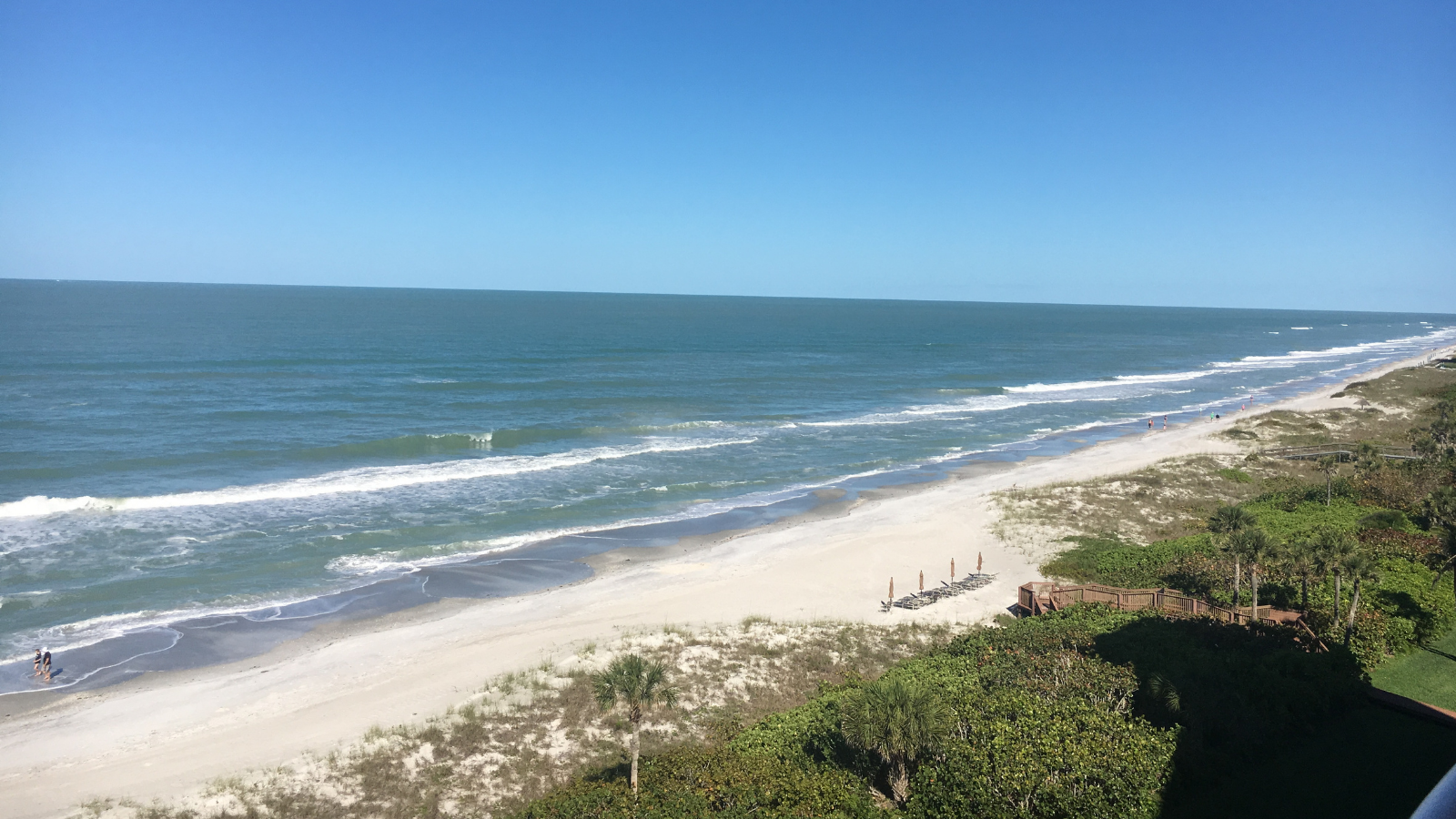
Voices for our oceans: the power of stories
Ellie Ross
Former Environment America intern
When I was a child I believed that the ocean was a magical place. A lot of my early life was shaped by my experiences wandering around a semi-wild strip of coastline behind my grandparents’ house in Florida and going on adventures amongst the tidepools. These adventures led me to endless discoveries — like when I found a school of silvery minnows stuck in a puddle after the tide went out, or when I spotted a pod of dolphins breaching in the distance. I spent hours chasing tiny ghost crabs through the sand and searching through layers of shells, trying to find the most eye-catching one. Even as a child, I was determined to discover everything beautiful that the ocean had to offer.
This love for wild spaces was the reason that I applied for an internship with Environment America and decided to study the environment in college. I was inspired by my heroes like Rachel Carson and Ayana Elizabeth Johnson who had used what they learned in college to fight for clean waters and a healthy planet. I wanted to follow in their footsteps and work to create a future filled with hope and solutions. However, it was here in college that I developed a new relationship to the ocean — one of profound concern.
My classes and professors showed chart after chart and study after study detailing how much humans have changed the Earth and what those changes mean for our oceans. My little ribbon of coastline suddenly seemed less like a place of wonder and awe, and more like a place of uncertainty. Would rising sea levels devour the beach that meant so much to me? Would ocean acidification push the dolphins and fish out of sight away from the coast? Could I hold on to the magic of this place if I had to pick my way through plastic littering the sand instead of shells?
For a while I struggled with this climate anxiety. How could I make sure that there would be a future for the wild ocean places that I held so close to my heart? Would my activism even make a difference? These questions can be hard to deal with and even harder to answer. But as I move through college, I continue to think back to my memories as a little kid at my grandparent’s house.
My early memories bring me hope. Having this hope means refusing to accept that the world around us is a lost cause. Having hope means knowing that change can happen and that our stories can make a difference. Hope encourages me to raise my voice alongside other dedicated and committed ocean activists, like those participating in our Voices for Our Oceans project. This program focuses on cultivating a network of dedicated community leaders and amplifying their voices to advocate for our oceans. We hold skills and activist trainings; encourage participating Voices to submit advocacy pieces to local media outlets; attend hearings; send letters to the Biden Administration; and push policymakers to prioritize the health of our oceans.
Through this work – and other similar projects – we’ve successfully pushed for the full restoration of protections to the Northeast Canyons and Seamounts Marine National Monument. We also pushed the Environmental Protection Agency to close the loopholes in water protection laws they opened during the pandemic, which put our ocean at risk. And we spearheaded several successful single-use plastic bans across the country. We’re holding producers responsible for the plastic waste that they produce and we’re empowering local activists to connect with decision-makers.
Hope encourages me to work with my community to find local solutions to problems that seemed hopeless before. Hope means that a better world is possible and when it seems like fossil fuel or fishing industries want to make it seem like nothing can be done, hope can be radical. I remain hopeful because future generations deserve the same opportunities that I had to fall in love with the ocean and I know that I am not the only one who believes this.
Even when things are changing in ways that they never have before, the ocean continues to be a magical place. I don’t want to look around the world and just focus on how much is at risk. Instead, I try to look with the same eyes that looked around me when I was younger and marveled at just how incredible everything was. When I go back to my grandparent’s house, I still find iridescent mother of pearl shells and I still watch tiny ghost crabs scuttle away from my footsteps. Beautiful things are still here and they deserve to be protected, not mourned.
All the words and efforts provided by those in our Voices for Our Oceans project motivate me. They are also a reminder that many people have stories similar to mine. I’ve had people tell me about how a childhood love for the oceans that they grew up around inspired them to take a stand against commercial fishing, oil drilling and other ocean threats.
These memories matter because they are what will power us to advocate for the protection and preservation that these special places deserve. There is power in joining with hundreds of community leaders who are using their voices to advocate for solutions to ocean problems and urge decision-makers to take action. And, just as important, there is hope.
This blog was guest authored by Environment America ocean intern Ellie Ross, senior at Brandeis University.
